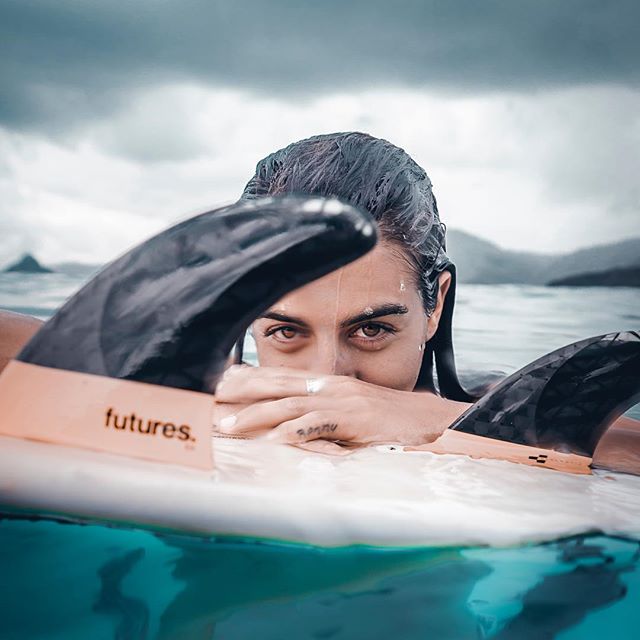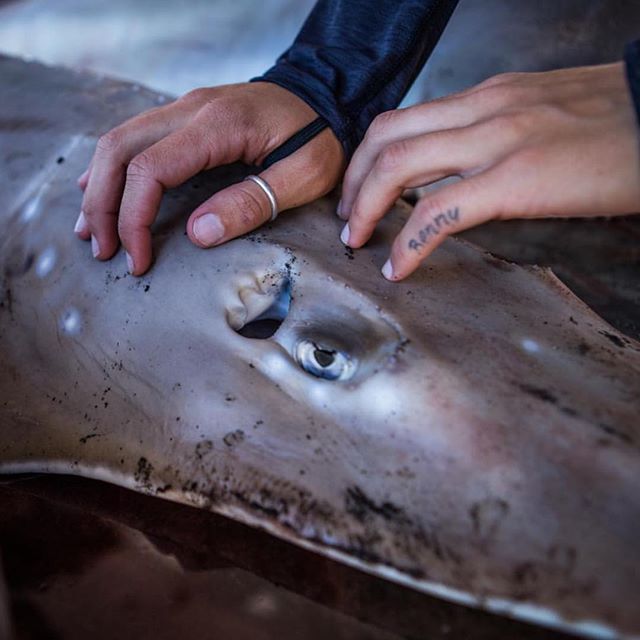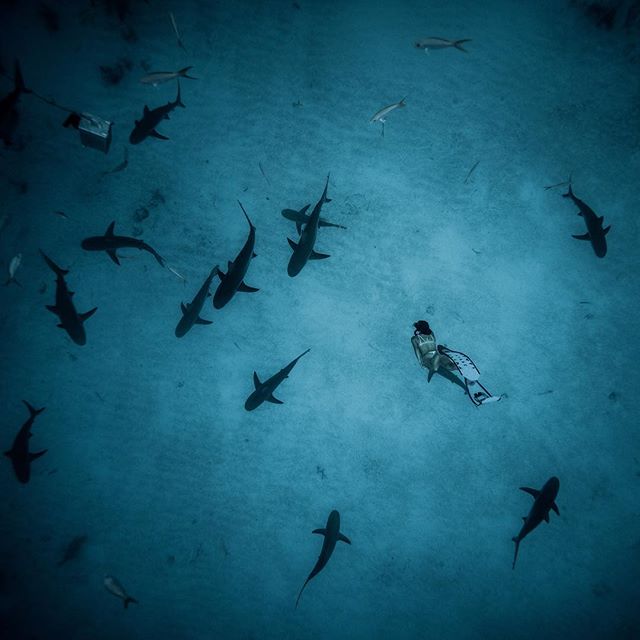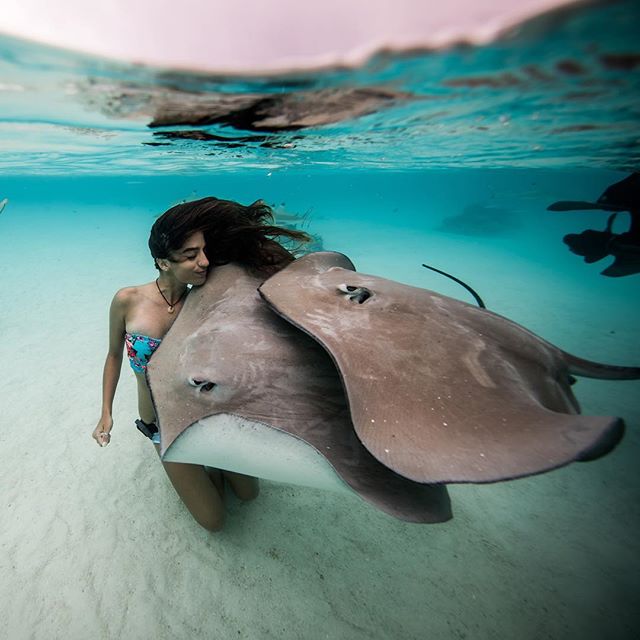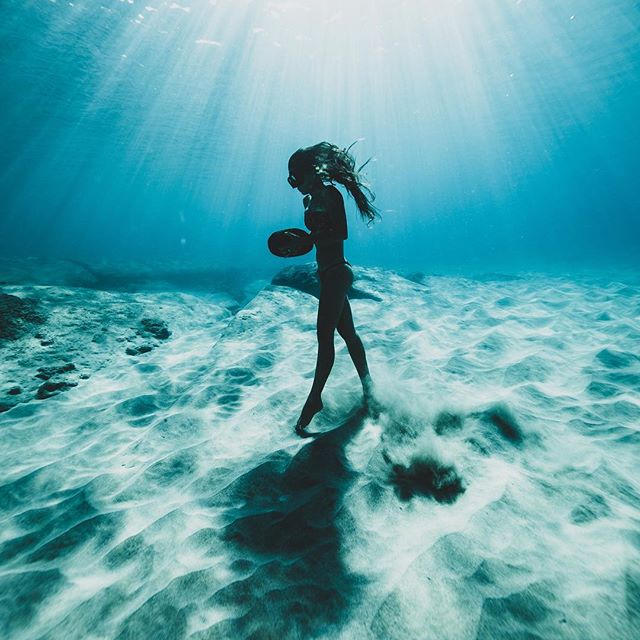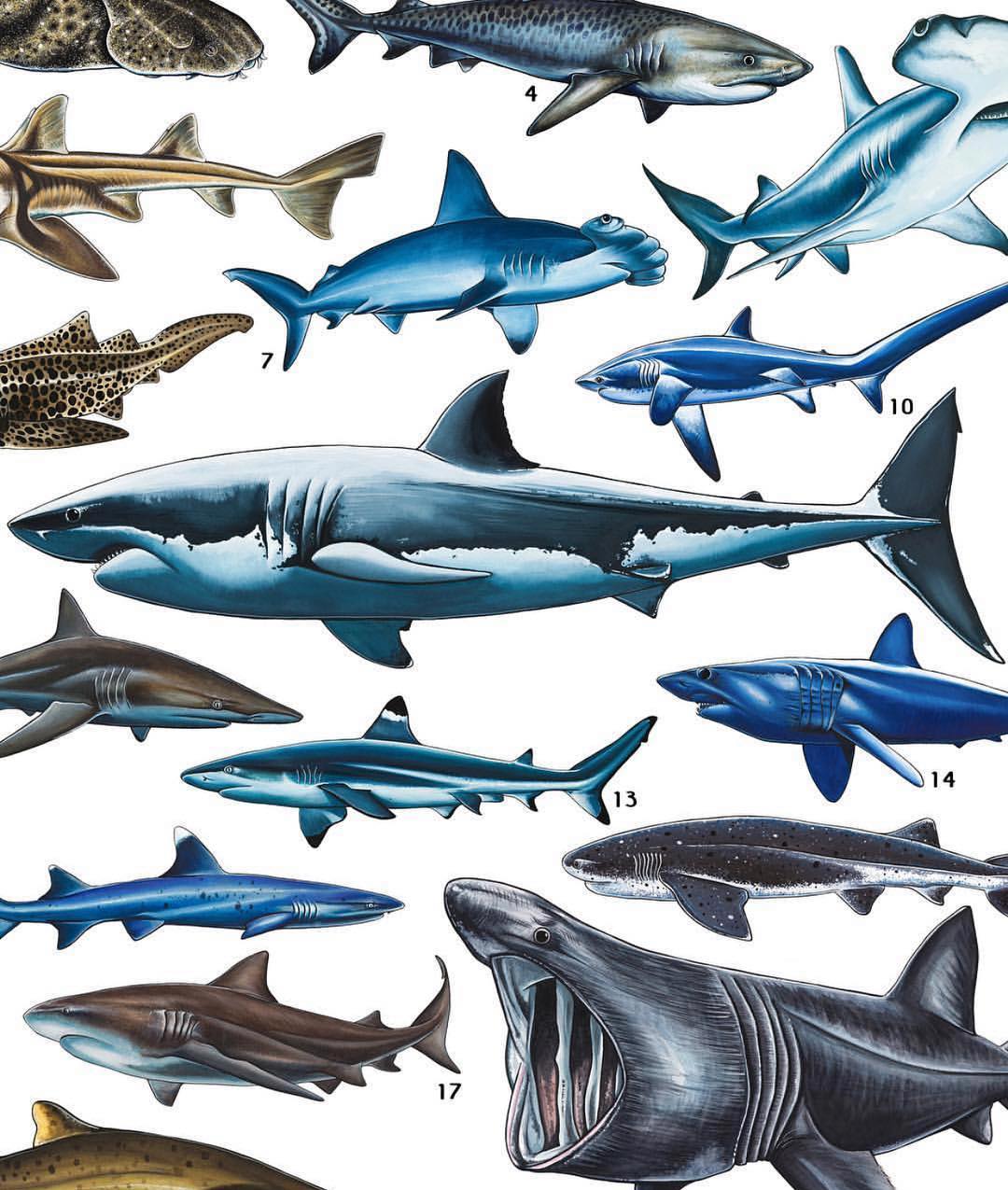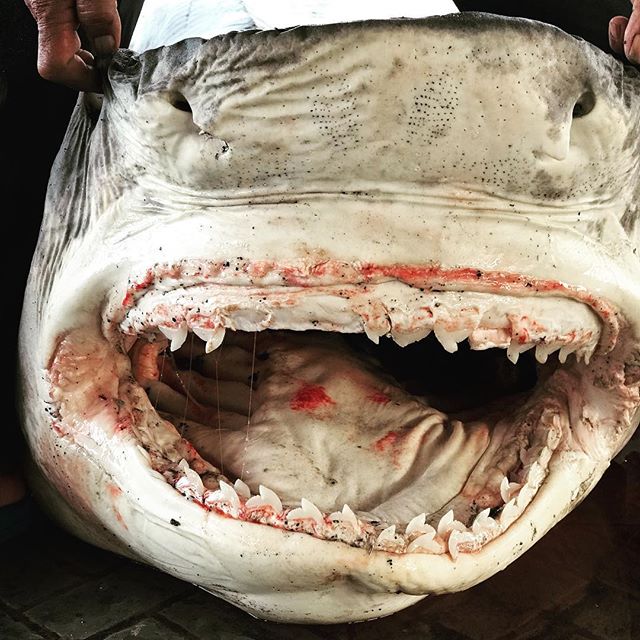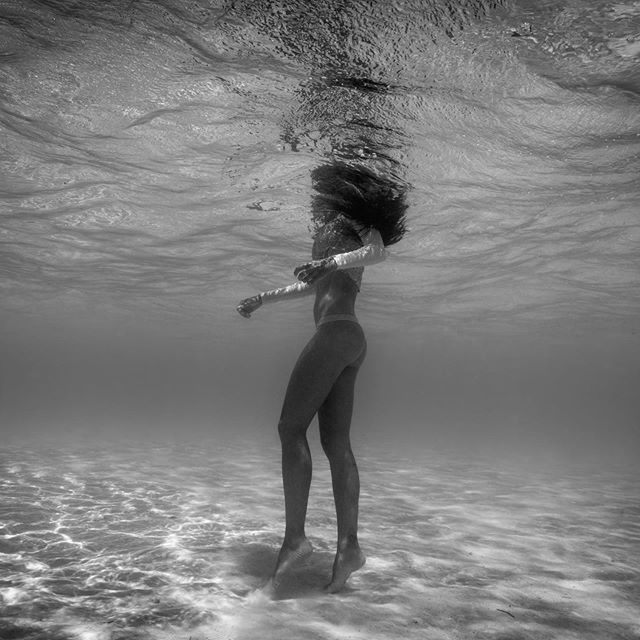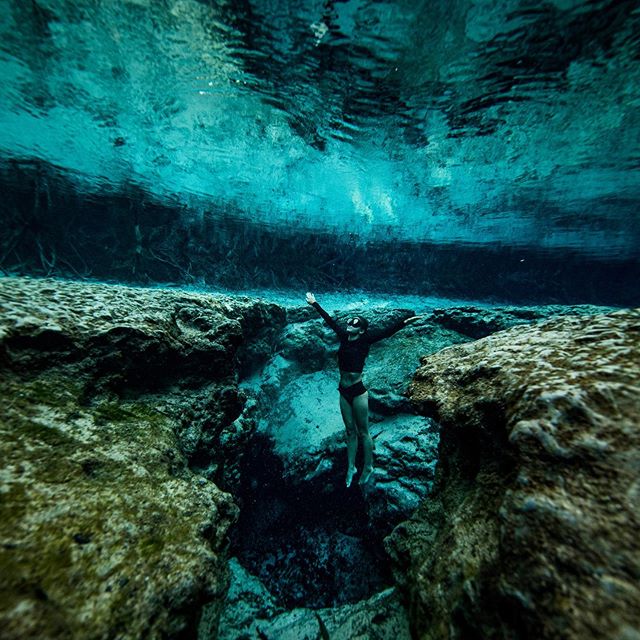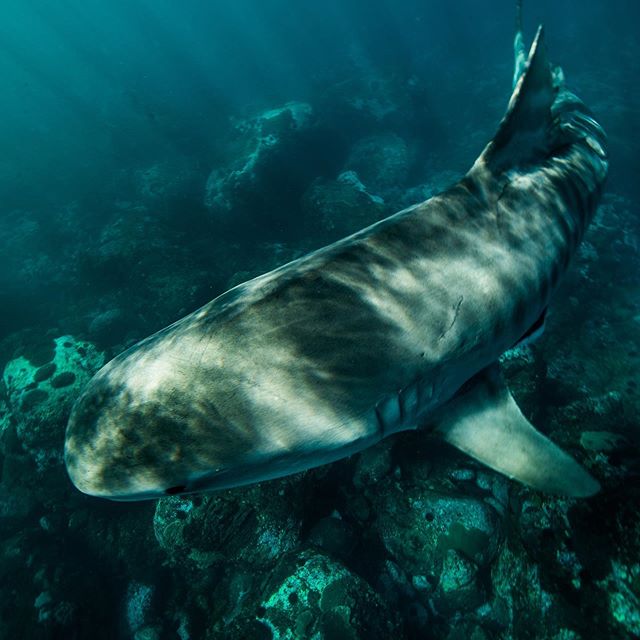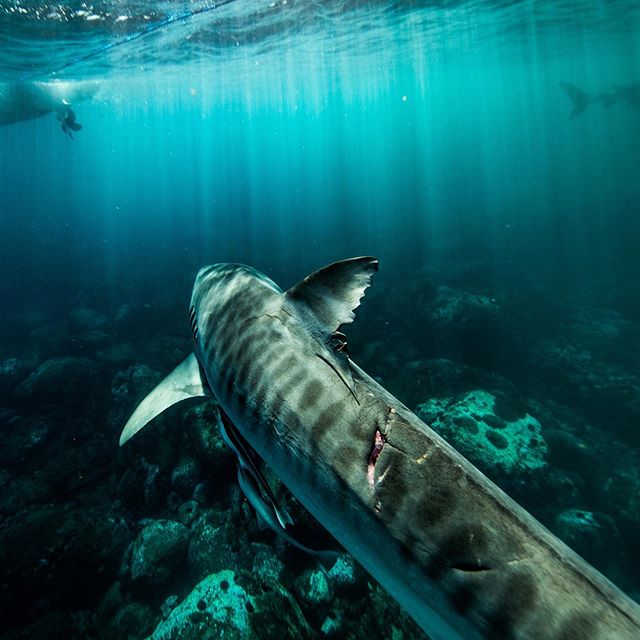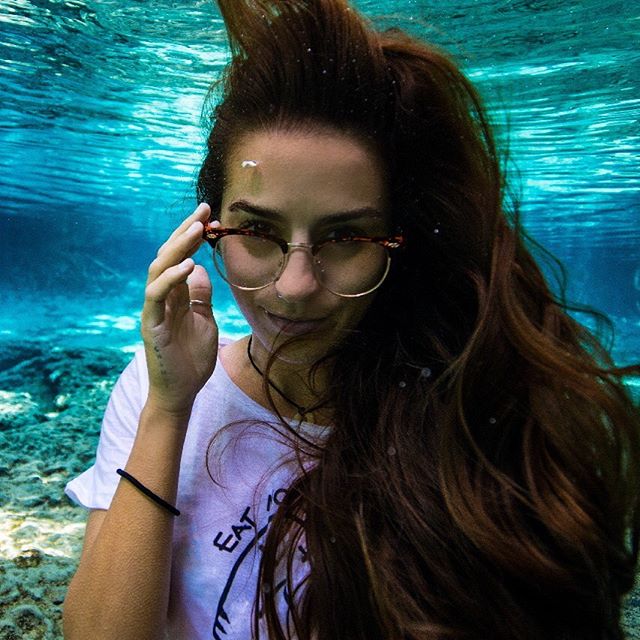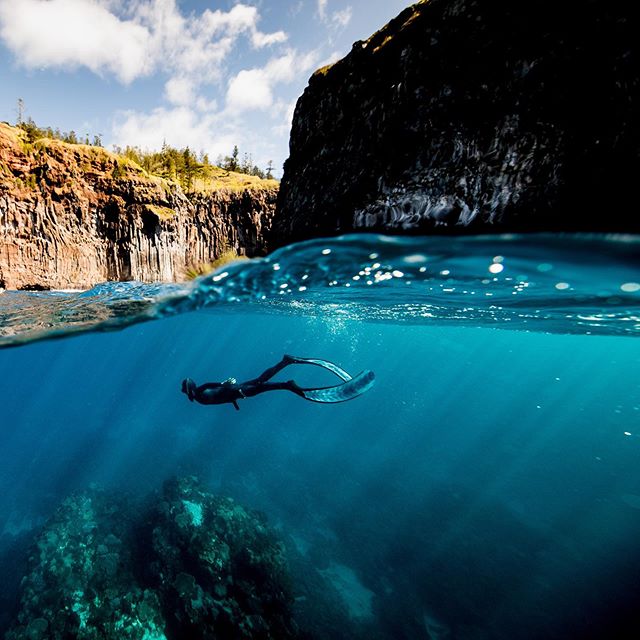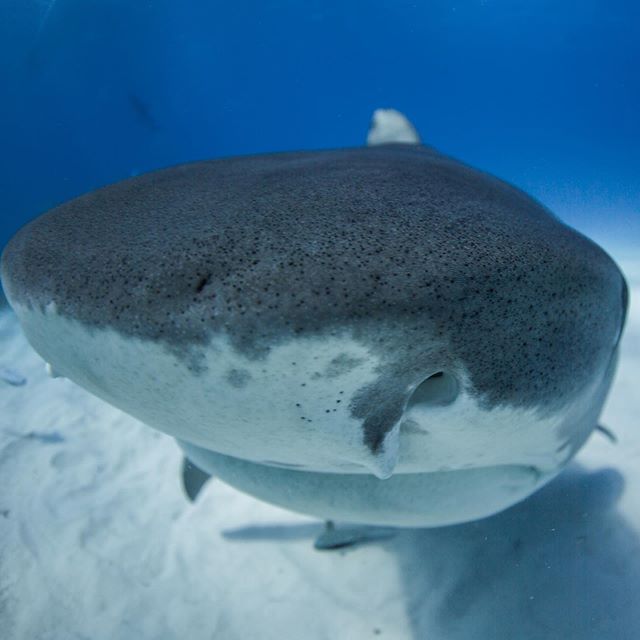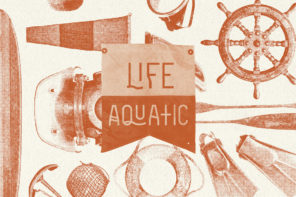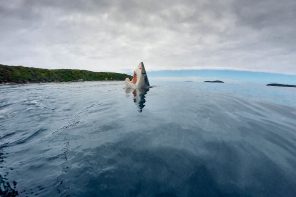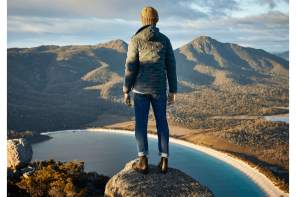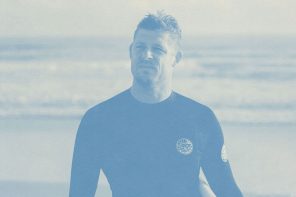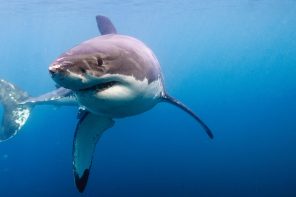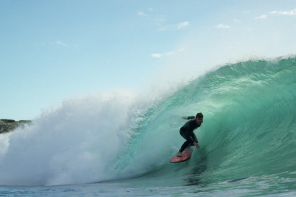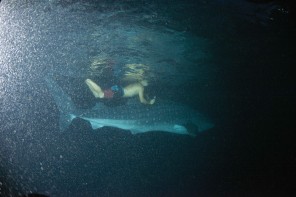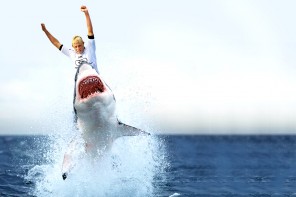Beneath the Surface with Madison Stewart
Sharks can be scary. Pretty general consensus there.
Photos by @sharkgirlmadison
Unless you’re Madison Stewart; a 22 year old Austrailian filmmaker, who willingly dives deep beside them so often that they are basically family. Noticing the population steadily decreasing in the waters that raised her, thanks partly to their largely unfair movie-villain reputation, she turned to filmmaking to spread awareness about the vitality of shark conservation and is making an effort toward this end with her organization Project Hiu. We chummed the waters asking about how she fearlessly swims fin-to-fin with sharks to show the world their importance, rather than their appetite.
Growing up in Australia, Madi was raised in the water home to the Great Barrier Reef and all of the species that thrive in the world’s biggest subaquatic city.
She describes her relationship with sharks as brotherly love, and when diving, she plays with them like the siblings she never had. Not speaking for everyone here, but no siblings of ours have a jaw with five plus rows of razor sharp teeth, so naturally, we had to ask Shark Girl how she made her way into the family.
Did you ever have the fear the majority of the world population has about this apex predator? Did you have to overcome it or did it never exist for you?
Madison Stewart: It never existed, and trust me, it’s not because I’m brave, I’m literally scared of everything else. [Chuckles] I think it’s just because I was raised with them and am so used to them. I also don’t let this blind me to the fact they are dangerous animals. I’ve had times where I’ve gotten out of the water because a situation has gotten too dangerous.
If swimming next to sharks doesn’t scare you in the slightest bit, and you’re native to Australia, the infamous land of dangerous animals, what scares you? Aside from seeing a world without sharks… is it heights?
MS: Heights for sure, talking to boys, pushing doors that say pull, asking for directions. I’m pretty scared of sharks when I’m surfing in deep or murky water—not an ideal situation, I know. I’m scared of blacking out when I’m free diving, but I’m scared of humans more than anything else.
When you dive, how does it make you feel?
MS: I’m going to be brutally honest… it’s everything to me, it’s who I am and how I was raised. I love the freedom and being close to animals. However, a little over a year ago, I was diagnosed with Post Traumatic Stress Disorder. It’s a disorder that is more common than expected in our society, not just reserved for soldiers coming back from war. It can affect anyone after suffering a traumatic experience. Unfortunately, mine involved water, so this changed diving for me. For the last year I’ve suffered panic attacks and fear in the water when I used to just feel happy. It’s changed for me, but its not stopped me from loving the feeling. I’m slowly working on being back to my old self in the water, but there are things I could do before that I no longer can.
How do you cope with this?
MS: I don’t think there is anything I can really do. The way I enter the ocean has changed. But it is a lot better than it used to be so for that I’m grateful. I think everyday I get a little better! My PTSD still gets in the way quite often; there are things I have not been able to do because of it. What really helped me gain a little confidence was completing a free diving course not so long ago, even though I had two panic attacks during the course.
What do you go down there to do, aside from film and give your dorsal-finned siblings a little noogie?
MS: My main objective underwater is obtaining footage. I have always found this is my most effective method of instigating change. Making films for the animals is why I go underwater now. If I’m lucky, I can get in the water without a camera and just enjoy these animals, watch them, be with them.
The Great Barrier Reef, which has been severely impacted by coral bleaching, is your second home. What do you see when you dive concerning the state of the reef? Are coral bleaching and survival of the shark population interrelated?
MS: The coral has always suffered in The Great Barrier Reef; it’s been through a lot in its lifetime. The issue now, is that it doesn’t bounce back. So although we can expect damage from cyclones and coral bleaching, the real issue is the lack of recovery. This is why it’s so sad. I know for a fact the reef is not the same as when I was a child, not even close to the same amount of fish or sharks. It’s not the same world.
My take is that people not questioning the origin of their food is one of the biggest issues on the planet.
What does “sustainability” mean to you and how do you try to incorporate sustainable habits into your everyday life?
MS: I try my hardest to do the little things that can make a difference from day to day. Sustainability, to me, means looking at the planet completely differently, something as simple as avoiding plastic or not eating meat. It means enforcing a mentality in young people that change is needed.
What’s your take on eating other seafood and meat? Are you an…Omnivore? Vegetarian? Pescatarian? Vegan? Flexatarian?
MS: My take is if you can’t catch and kill it yourself, you shouldn’t be eating it. My take is that people not questioning the origin of their food is one of the biggest issues on the planet. Undoubtedly, one of the biggest and most effective things you can do for the planet is change your diet.
What efforts can be taken by people in their hometowns to begin to make the change that you have?
MS: My mum taught me to start small, focus on the issues around me and things I can change. I started with a fishery that was operating on the reefs I grew up diving and that spiraled me into taking on the world and conservation issues everywhere. It’s also very simple to make small impacts in everyday life by being smart about what you consume and questioning and speaking up about things. This is something anyone can do.
Can you describe the amount of success you have had with Project Hui and the measures you have taken to get to this point?
MS: Project Hiu is constantly moving and is still in its early days, but so far it’s been a huge success. As well as distracting boats from shark fishing, I’ve managed to make connections that could help keep the boats out of the water for longer, saving more sharks. I think the really impressive thing, however; has been the changes we’ve made to the community. Waste management, clean drinking water, improving the school and the income of the women are a few small things we are working on.
They are just like any other animal, trying to survive. They aren’t out for blood. Most sharks when they see a human will run in fear.
The project’s role is to create alternative revenue sources for fisherman in countries who are dependent on shark fishing—Do you think this could be done for other locations and controversial issues (Such as animal agriculture in the US)?
MS: It could be, but not for animal agriculture. The reason this works for me is because the greed of the first world relies on exploiting lesser-developed nations. Animal agriculture is something we do in developed nations with every alternative opportunity available. It’s done from greed, not survival.
Lastly, what is the one thing you would say most people misunderstand when it comes to sharks, their behaviors, and the utter necessity of their presence?
MS: I think the two biggest misconceptions are: 1) “Their population has boomed and now there are too many,” which isn’t correct at all. And 2) That they are “blood-thirsty killers that want to eat people,” which is another major misconception. They are just like any other animal, trying to survive. They aren’t out for blood. Most sharks when they see a human will run in fear.

